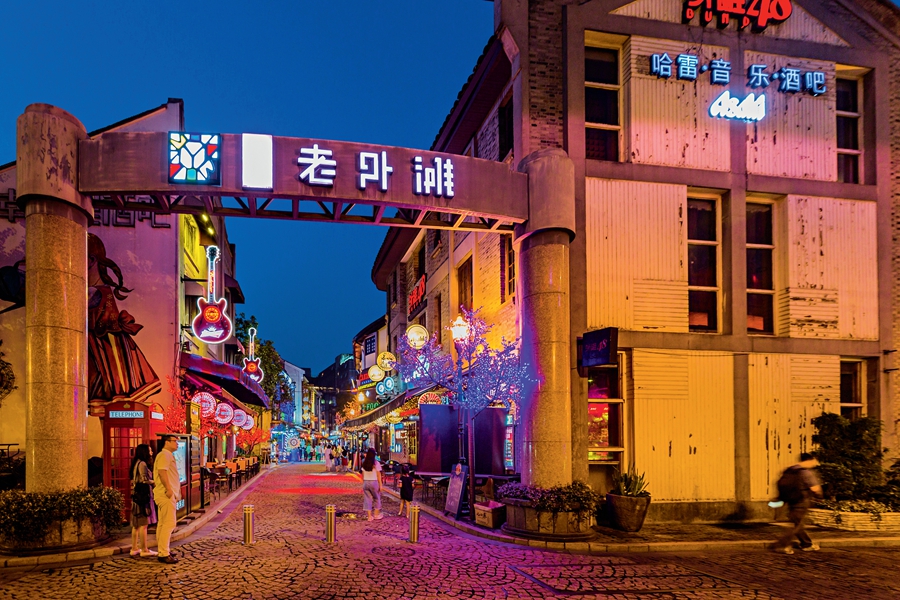Ningbo – The Harbor City
 0 Comment(s)
0 Comment(s) Print
Print E-mail China Today, April 19, 2018
E-mail China Today, April 19, 2018

The relics used to be an ancient large-scale warehouse. After the Song, Yuan, and Ming dynasties, large ruins with a clear layout have been completely preserved. A large number of trade ceramics were unearthed here, gathering works from famous kilns in different regions of North and South China in the Song and Yuan dynasties, reflecting the historical truth of the development and prosperity of the Maritime Silk Road at the time.
Ningbo’s cultural relics also include canoes, wooden paddles, and pottery boat models unearthed in the Hemudu Site, imported articles of the Han Dynasty, ceramics for trade from Shanglinhu ancient kiln site, and coastal defense site at Zhenhai. Various ruins reflect many aspects of the entire society, covering politics and diplomacy, economic and trade, port traffic, and folk customs.
Today’s Ningbo Port is already an important part of the Shanghai international shipping hub and has opened shipping routes with more than 600 ports in more than 100 countries and regions in the world.
Vibrant Ningbo Business Group
Unlike the traditional agriculture civilization in Central China that encourages agriculture rather than trade, ocean trade allowed Ningbo people to form a regional culture that promotes agriculture and trade simultaneously. The local East Zhejiang School provided ideological support for the development of the commodity economy in Ningbo.
Without sectarianism, the East Zhejiang School is compatible and innovative. It advocates that academic research should serve the society and has a great influence on Chinese modern and overseas academics (especially Japan and Southeast Asia). Its ideological concepts are in line with the development trend of Ningbo’s commodity economy and society. They also emphasize personality, individuality, ability, utility, and practical concepts, and are the main characteristics of Zhejiang’s humanistic spirit. A developed commodity economy, utilitarian, and pragmatic tradition, coupled with the open ocean trade, has shaped Ningbo into a developed commercial land, and made it the forefront for Chinese businessmen to go global since modern times.
The Ningbo Confraternity is one of the most influential business groups in modern Chinese history. As early as the late Ming Dynasty, Ningbo merchants controlled the industries of traditional Chinese medicine, garment industry, and banking industry in Beijing. Since the modern times, they took the lead to learn the Western modern industrial civilization, and advanced the development of China’s commerce and industry. Ningbo businessmen established the first Chinese bank with modern significance, the first Chinese-funded shipping company, and the first Chinese-owned machinery factory. Ningbo businessmen are all over the world, many of them world-class business tycoons.
The important reason why the Ningbo Confraternity has endured is that it formed a unique and influential culture in the difficult entrepreneurial process. Based on the Confucian tradition of “integrity and righteousness,” this culture also integrates Ningbo’s local pioneering and innovative, compatible, and inclusive marine culture. For example, the Ningbo Yue family, who founded Tongrentang pharmacy in 1669, still abides by the ancient code that “although the preparation of the medicine is complicated, no one dares to save the labor; although the medicine is expensive, no one dares to reduce the material.” This self-discipline guarantees no mistakes are made. The time-honored brand has become one of the representatives of the Ningbo Confraternity. The business management takes sincerity as the base and gains profit from righteousness, which has been abided by Ningbo traders for a long time; even today’s overseas Ningbo Confraternity look up to it as the standard.





